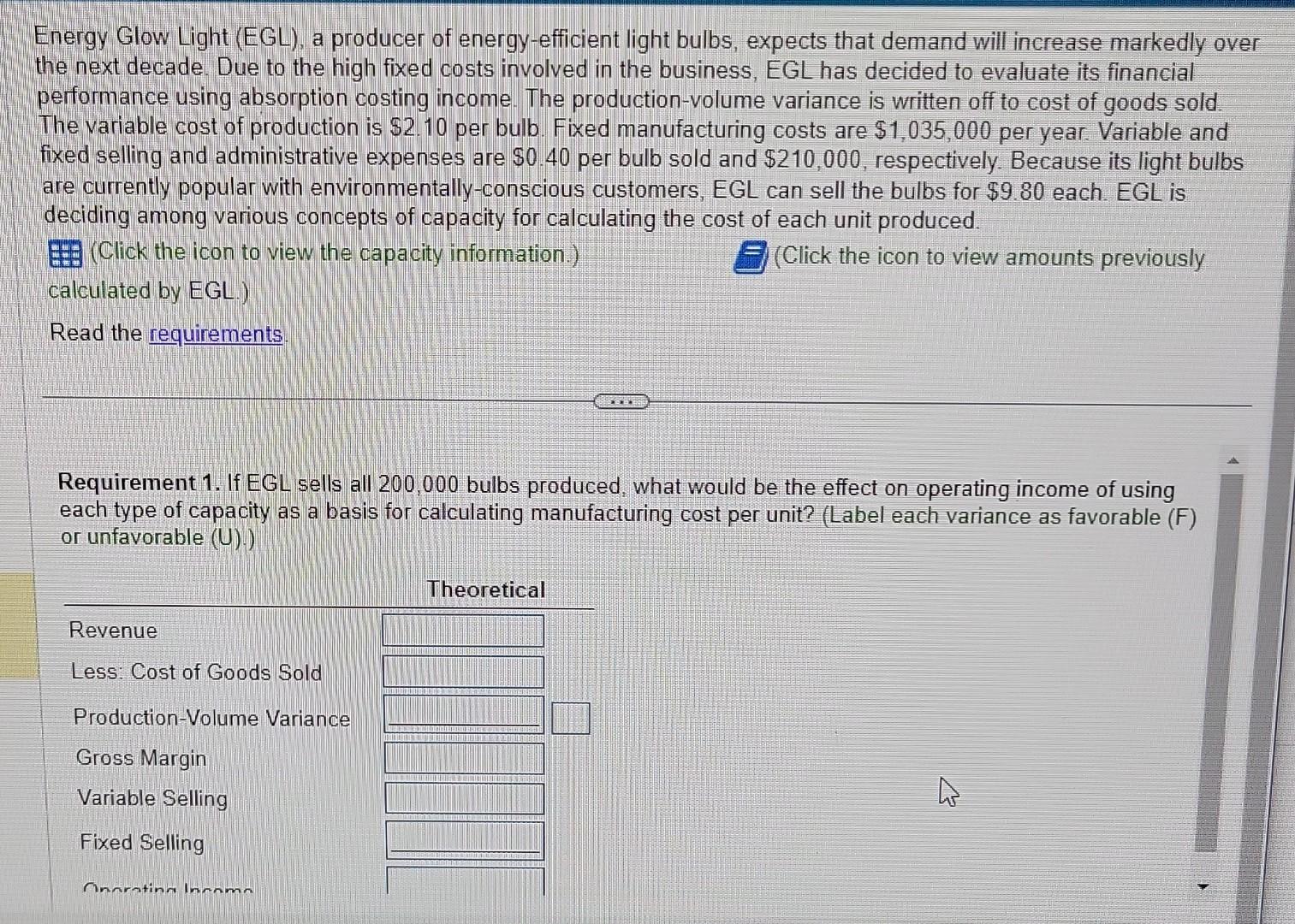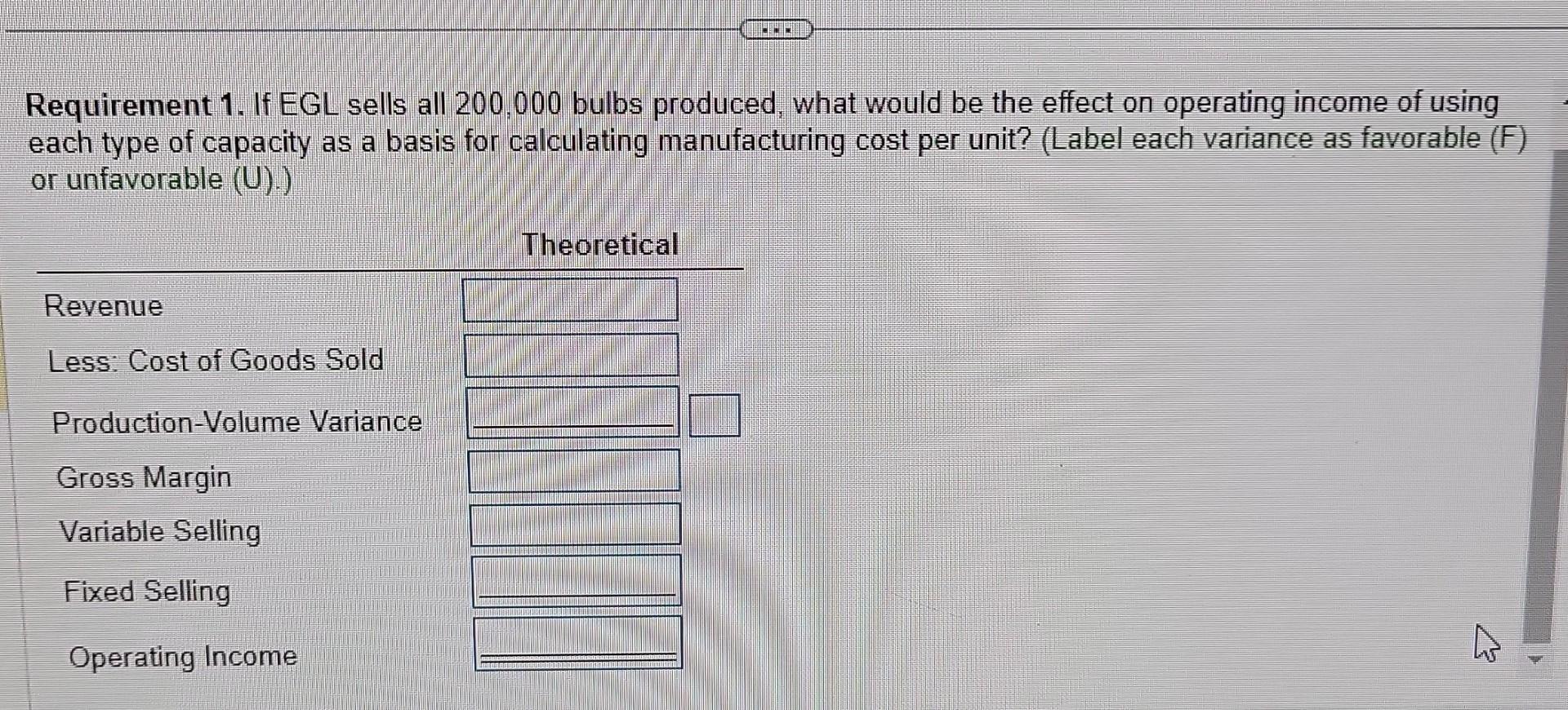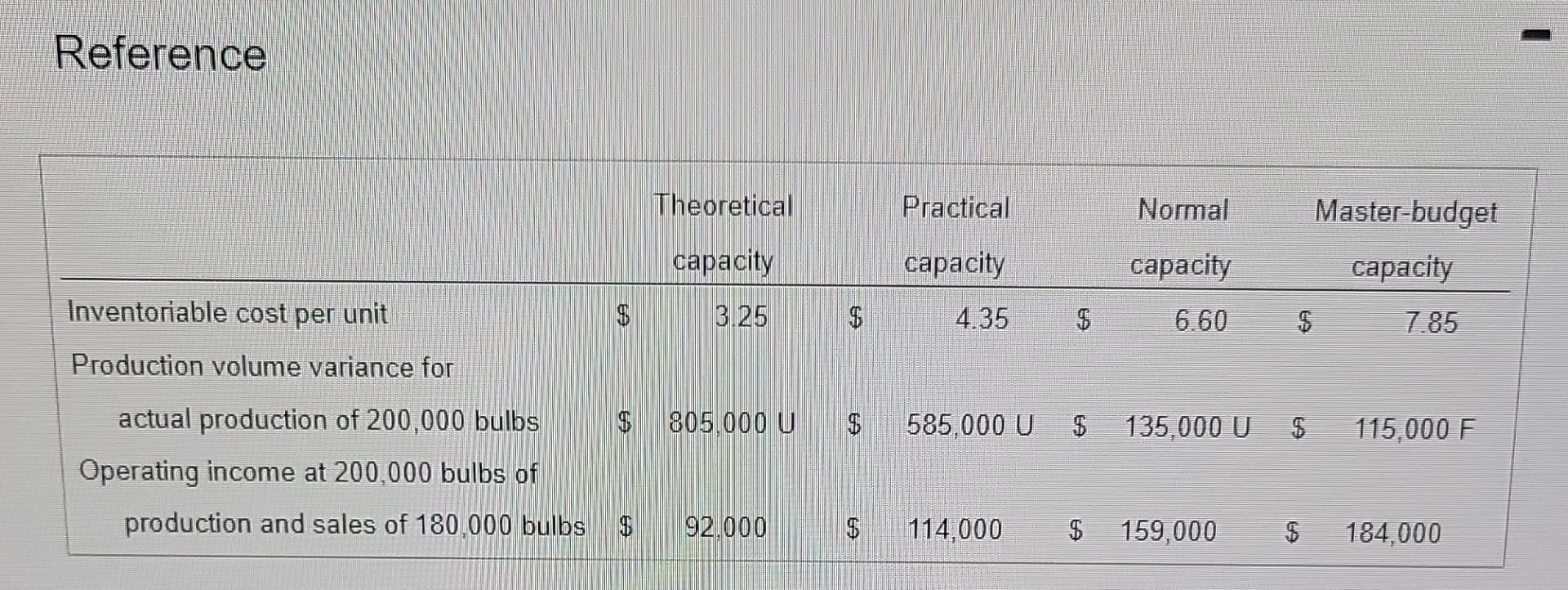Answered step by step
Verified Expert Solution
Question
1 Approved Answer
Energy Glow Light (EGL), a producer of energy-efficient light bulbs, expects that demand will increase markedly over the next decade. Due to the high fixed





Energy Glow Light (EGL), a producer of energy-efficient light bulbs, expects that demand will increase markedly over the next decade. Due to the high fixed costs involved in the business, EGL has decided to evaluate its financial performance using absorption costing income. The production-volume variance is written off to cost of goods sold. The variable cost of production is \$2.10 per bulb. Fixed manufacturing costs are $1,035,000 per year. Variable and fixed selling and administrative expenses are $0.40 per bulb sold and $210,000, respectively. Because its light bulbs are currently popular with environmentally-conscious customers, EGL can sell the bulbs for $9.80 each. EGL is deciding among various concepts of capacity for calculating the cost of each unit produced. (Click the icon to view the capacity information.) (Click the icon to view amounts previously calculated by EGL.) Read the requirements. Requirement 1. If EGL sells all 200,000 bulbs produced, what would be the effect on operating income of using each type of capacity as a basis for calculating manufacturing cost per unit? (Label each variance as favorable (F) or unfavorable (U).) Requirement 1. If EGL sells all 200,000 bulbs produced, what would be the effect on operating income of using each type of capacity as a basis for calculating manufacturing cost per unit? (Label each variance as favorable (F) or unfavorable (U).) Data table Reference Requirements 1. If EGL sells all 200,000 bulbs produced, what would be the effect on operating income of using each type of capacity as a basis for calculating manufacturing cost per unit? 2. Compare the results of operating income at different capacity levels when 180,000 bulbs are sold and when 200,000 bulbs are sold. What conclusion can you draw from the comparison? 3. Using the original data (that is, 200,000 units produced and 180,000 units sold) if EGL had used the proration approach to allocate the production-volume variance, what would operating income have been under each level of capacity? (Assume that there is no ending work in process.)
Step by Step Solution
There are 3 Steps involved in it
Step: 1

Get Instant Access to Expert-Tailored Solutions
See step-by-step solutions with expert insights and AI powered tools for academic success
Step: 2

Step: 3

Ace Your Homework with AI
Get the answers you need in no time with our AI-driven, step-by-step assistance
Get Started


